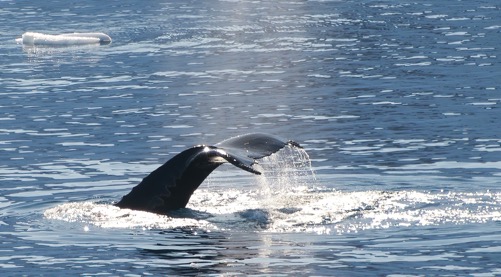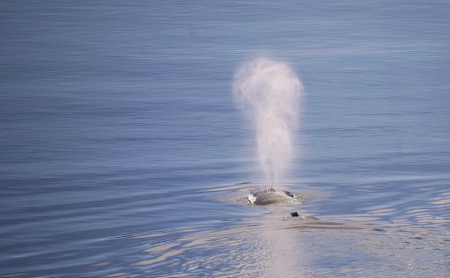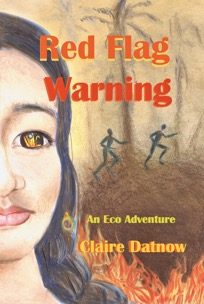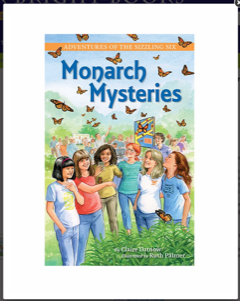YA Eco Mysteries, Memoirs, Novels & Travel
Eco Fiction Writer's Blog Episode One
Claire Datnow's Writing Adventures
Would you like to go on a journey with me to faraway places—one that takes unexpected twists and turns? You don’t need to pack a thing or purchase a ticket. I will be your guide as we travel through time and space, meet fascinating people, and gaining a different perspective as I research and write my newest Eco adventure, The Whales Lament. All you need to bring along is your curiosity and imagination— and, of course, internet access. To begin this journey subscribe by email to: cldatnow@me.com
Note: The Whales Lament is the second book in a proposed cli-fi trilogy. Red Flag Warning: An Eco Adventure, first book in the trilogy, can be purchased from Amazon or downloaded on Kindle.

The Whale's Lament (Boris Datnow)
Our Journey Begins: Nahoon, Alaska as Alysie Muckpa searches for the gray whale, Natsilane:
Part One.
It is late spring on Chichagof Island, Alaska and the air and the water are warming. The bears have wakened from their long winter sleep. And all eyes gazing out to sea for the most graceful giants the gray whale. It is here they begin and end the longest migration of any mammal, 12,000 miles from the summer feeding grounds in the icy waters of the Arctic to their breeding grounds in the warm lagoons of Baja, Mexico—and back again with the changing seasons. This migration can take two to three months. Gray whales normally travel alone or in small groups. They surface only for a quick spout of air and breath before disappearing into the ocean. Instead of teeth, gray whales have baleen which is like a thick comb with long hairs. Diving down to the muddy bottom, they scoop up sediment form the ocean floor filtering out mud and trapping plankton and krill to eat. In the seventeen and eighteen hundreds whalers in search of oil hunted gray whales to near extinction. In 1946 and international treaty was singed to provide oversight and management of whale hunting. But it was under the protection of the Endangered Species Act in 1974 and National Oceanic and Atmospheric Administration’s (NOAH) careful management that the eastern pacific gray whale has recovered to a sustainable population. Today, nearly 24,000 gray whales continue their annual migration along the coast of North America, giving humans a glimpse of these majestic creatures that live in the deep. However, many factors still threaten gray whales including: vessel strikes, disruption of their migration routes, and entanglement in fishing gear. The whales that lived in the Western Pacific are no longer seen along the Asian shores. Baleen whales are acoustic animals and can communicate across entire oceans using vocalizations. Every species of whale speaks a unique "language" and scientists are still trying to learn what information whales communicate to one another.

Spouting Whale, Antarctica (Boris Datnow)
Chapter One. Nahoon Alaska on Chicagof Island in the early spring.
Shading her eyes from the glow of the rising sun, Alysie Muckpa stood alone on the rugged cliffs gazing out to sea like a sailor longing for the sight of land. The wind tore at her hair, unraveled her braids and whistled in her ears. The night before, she had dreamed she was riding high on her whale’s back, with her black hair flowing behind her . . . steering him through the towering waves. With the dream still floating in her head, she had crept out of the house, carrying a backpack with snacks, water, a rain poncho, a flashlight, and her special whorled shell prepared to stay on watch even even if a storm broke.
Alysie ignored the gulls screaming by on near-gale gusts, and the plovers bobbing along the shore. The peregrine falcon winging swiftly across cliffs; the waves sloshing into the tide pools alive with hermit crabs, sea stars, sea cucumbers and sea urchins. On any other day, she would have lingered to marvel at the rainbow of creatures in the pool. On that day she kept her eyes focused on the ocean, searching for the misty spray of a whale or its dark shadow lurking beneath the water.
Something in the curve of the waves caught Alysie’s attention. A thrill tingled down her spine. Raising the binoculars to her eyes, she gasped in surprise. SUBSCRIBE to read more about what happens next.
To inspire you along the way here are ideas, travel destinations, and books to enjoy.
Send Your Questions and Ideas to cldatnow@me.com—they are most welcome
Travel: Boris and I visited Alaska in 2019. The villages and towns we explored inspired the background to this story. We are planning to visit Baja California in February 2022 where gray whales migrate to the lagoons to mate and have their calves.
Documentary: Life Among Whales, streaming on PBS, narrated by Robert Payne.
Books: Fathoms: The World in the Whale by Rebecca Giggs
Ice Whale by Jean Craighead
Song for a Whale by Lynn Kelley
Articles: The Last Whaling Station in America http://www.lakata.org/arch/whaling.html
National Oceanic and Atmospheric Administration (and an exceedingly long list of other resources)
Eco Fiction for Tweens,Teens,Adults

Why do I write Eco fiction? What do I want readers to say when they refer to my books? I would be thrilled if they said that they love the way I weave the wonders of nature together with a strong conservation message. In particular, I focus my Eco Fiction on young people in the hope that my stories will inspire them to become wise conservationist, who will make a difference to our threatened ecosystems. Here are links to Eco fiction readers, writers, and books:
Connecting to Nature with Apps
If you are an environmental educator — teacher, nature guide, or parent— you will find this lesson plan, Eco Detective Nature Hunt, exciting. In my Eco Mystery series, The Adventures of The Sizzling Six, six feisty teens solve an intriguing eco mystery in order to save an endangered species. Now students can create their own eco mysteries with the new “green” apps. These inspire kids to go outside and observe nature closely. In other words, outside time and screen time do not have to be mutually exclusive. Instead of battling to keep kids away from gadgets, why not use technology to encourage kids to explore outdoors? In this blog I outline a way to use nature-based apps that enhance kids’ experience outdoors, and then arouse their curiosity to learn more through reading and research.
Read More...
Alabama Biodiversity in our Hands
The theme selected for the 2015 EEAA Annual Conference, Alabama's Biodiversity: It's in Our Hands, could not be more stimulating and relevant. The presentations and field trips at the conference highlight our state’s amazing biodiversity. Scot Duncan, author of Southern Wonder, will be the key note speaker. In addition, pre-conference, day-long workshops provide an overflowing cornucopia of resources for teachers, thanks to Shirley Farrell, Gifted Specialist, Alabama Department of Education. Read More...
Environmental Project Based Learning
1. LAUNCH PARTY. To arouse the students’ curiosity, plan the event to be novel and dramatic. Design a presentation that encourages students to generate questions that plunge them into an intriguing ecological mystery that they must solve in order to help save an endangered species. You could invite an author of eco mysteries or non-fiction books with environmental themes. For example, for my school presentation I dress up as Mrs. Margarita Mariposa, a character in The Adventures of The Sizzling Six: Monarch Mysteries (Book Six). I wear a striking mask with flowers and butterflies, and send
paper monarch butterflies into the air.

Read More...



